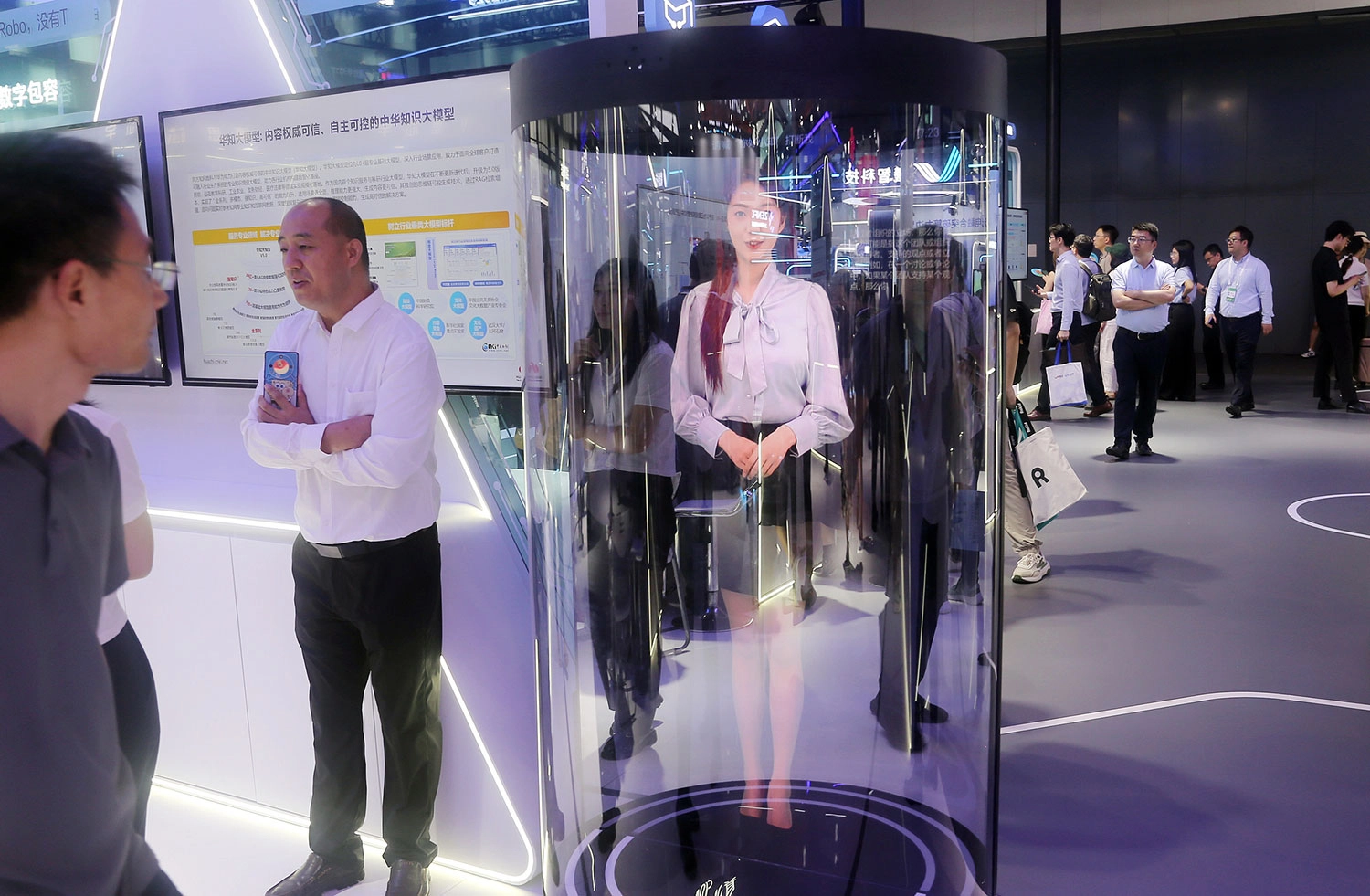At this years World AI Conference (WAIC), which concluded in Shanghai Monday, artificial intelligence companies showed growing alignment behind the U.N.-backed AI for Good initiative a commitment that industry leaders say has shifted from idealism to an urgent reality.
Reflecting this shift, the event showcased everything from AI-powered video generators to humanoid robots, demonstrating how new tech is being developed not just for efficiency and performance but also with a focus on social impact, inclusivity, and ethical governance.
The three-day conference, which drew around 1,200 representatives from 30 countries and featured over 800 global exhibitors, came as China seeks a more active role in shaping global AI governance.
SUBSCRIBE TO OUR NEWSLETTER
By submitting, you agree to our Terms Of Use.*Please enter an email address.
At the events opening ceremony on Saturday, Chinese Premier Li Qiang announced an initiative to establish a global AI cooperation organization, dubbed the World Artificial Intelligence Cooperation Organization (WAICO). We should enhance coordination and alignment to establish a widely accepted global governance framework for AI at an early date, Li said.
At a keynote speech delivered at the event, Geoffrey Hinton, widely regarded as the Godfather of AI, cautioned against the unchecked rise of artificial intelligence, comparing it to a pet tiger: Generally speaking, keeping a tiger as a pet is not a good idea, Hinton said. But if you do keep a tiger, you have only two choices: either train it so that it doesnt attack you, or eliminate it, he said. For AI, we have no way to eliminate it.

Companies that participated in the event and beyond are embracing the AI for Good initiative through a range of strategies, including the development of socially impactful technologies, inclusive product design, and cross-sector partnerships. The shared goal is to ensure that AI serves the broader public interest while promoting ethical, transparent, and responsible innovation.
At the expo, AIsphere Technology showcased its AI video platform, PixVerse honored as an Outstanding Case in the Productivity category at the U.N.s AI for Good Global Summit 2025 earlier this month.
PixVerse, which currently has more than 60 million users worldwide, empowers content creators to create cinematic-quality videos simply by uploading a photo or entering text no professional experience required.
Example cases of its versatility include a stay-at-home mother who uses the tool to produce videos to childrens songs, which have since gone viral. In Brazil, one online influencer on TikTok got over 210 million views after using the tool to age popular cartoon characters.
Jaden Xie, co-founder of AIsphere, said the team aims to equip people from diverse regions, backgrounds, and income levels with accessible digital storytelling tools for self-expression. Traditionally, video creation has been inaccessible to many due to the need for professional skills, expensive equipment, and significant time commitments, he said, adding that in most countries, fewer than 10% of social media users actively create video content.
There are still billions of people around the world who have never created a video or used video to communicate, share their lives, or tell their stories. We hope to use AI to help these people by making video creation universally accessible, Xie told Sixth Tone.
The rapid transition of artificial intelligence from proof-of-concept demonstrations to large-scale, real-world applications is another driving factor behind the change.
2025 is widely regarded as the year when large-scale AI agent applications have become mainstream, and the change was readily apparent at WAIC.
Last year, the focus was still on the parameter scale and technical architecture of large models. This year, the attention has shifted to how these models are being implemented and the effectiveness of their real-world applications," Zhang Xiaojuan, vice president of Shanghai-headquartered AI firm Midu, told local media.
Industry leaders warn that the rapid integration of AI into such sensitive areas requires developers to prioritize safety, fairness, and public benefit alongside innovation.
Han Xinyi, CEO of fintech giant Ant Group, an affiliate company of Alibaba based in the eastern city of Hangzhou, emphasized in a keynote speech at WAIC that AI-powered services must be professional, personalized, and automated, adding that AI applications should bridge both digital and physical worlds.
We are focusing on AI applications, striving to make breakthroughs in the upper limits of intelligence that benefit the everyday lives of ordinary people, he said, adding that the company focuses on three vertical sectors life, finance, and health care with the goal to build services that everyone can use.
The development of artificial intelligence still faces multiple challenges, but the integration and innovation of multiple technologies will raise the baseline for AI, said Han.
Editor: Tom Arnstein.
(Header image: A humanoid robot on display at the World AI Conference (WAIC) in Shanghai, July 26, 2025. Ying Tang/NurPhoto via Getty Images/VCG)



